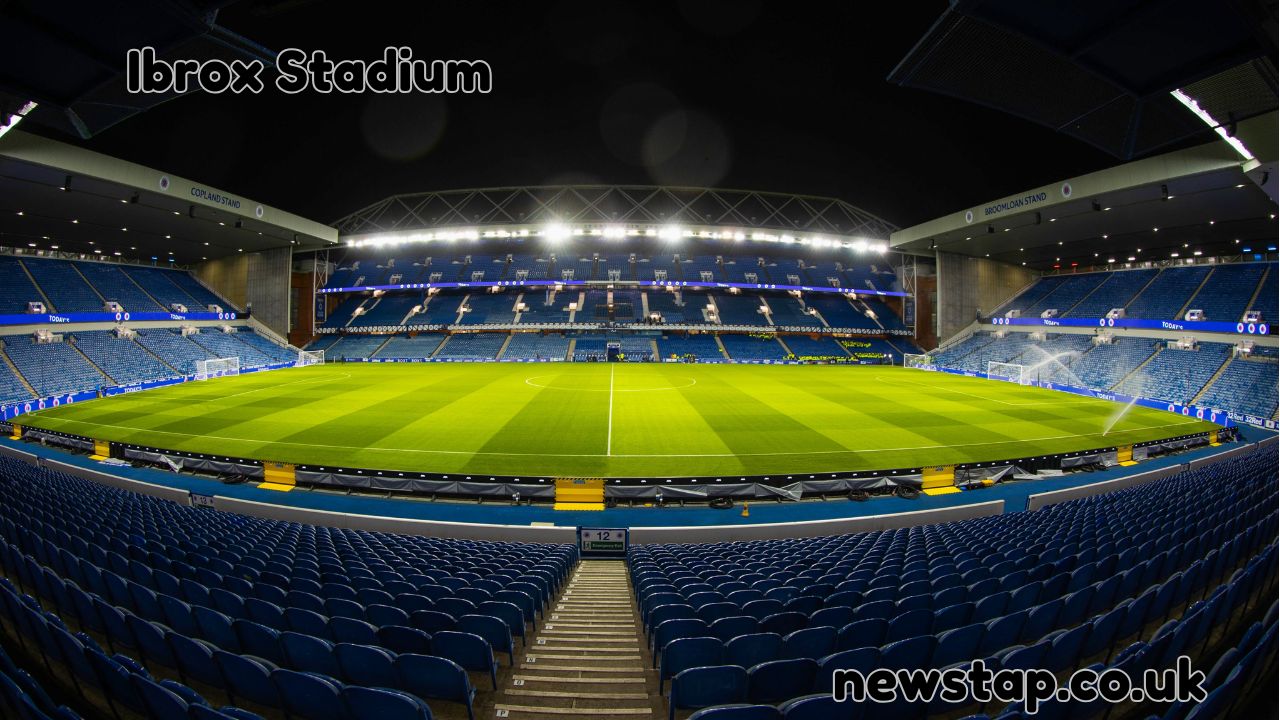Introduction to Ibrox Stadium
Few football grounds in the world carry the same history, pride, and atmosphere as Ibrox Stadium. Home to Rangers Football Club in Glasgow, Scotland, it is more than just a sports arena—it is a cultural landmark, a place where tradition meets modernity. Over the decades, Ibrox Stadium has evolved into one of the most iconic football venues in the UK, blending its rich history with state-of-the-art facilities.
The Origins of Ibrox Stadium

Ibrox Stadium was officially opened in 1899, designed to serve as the permanent home of Rangers FC. At the time, the club was growing in prominence and needed a venue worthy of its ambitions. The early structure reflected the traditional British stadium style, with large terraces that could hold tens of thousands of passionate fans.
Ibrox Stadium and Its Historic Significance
The name Ibrox Stadium is inseparable from Scottish football history. Over the years, it has been the stage for countless memorable matches, dramatic victories, and intense rivalries. From Rangers’ domestic triumphs in the Scottish league to European nights under the floodlights, Ibrox has hosted moments that have become part of football folklore.
Tragically, the stadium is also remembered for the Ibrox disasters of 1902 and 1971, where structural collapse and crowd congestion led to the loss of lives. These events deeply impacted football safety regulations and paved the way for reforms that made stadiums safer across the UK.
Architecture and Design of Ibrox Stadium
One of the defining features of Ibrox Stadium is its unique blend of historic architecture and modern design. The red-brick façade of the Bill Struth Main Stand, a listed building, remains one of the most recognizable sights in British football. Inside, the stadium has undergone major renovations to provide fans with modern seating, improved sightlines, and upgraded facilities.
With a capacity of over 50,000, Ibrox is among the largest stadiums in the UK, offering an intimidating yet electrifying atmosphere on matchdays.
Ibrox Stadium in Modern Football
Today, Ibrox Stadium stands as both a historic monument and a modern football arena. It boasts facilities that rival Europe’s best, including hospitality suites, media zones, and player amenities. Rangers fans, known for their passion and loyalty, make Ibrox one of the loudest and most spirited grounds in the sport.
Beyond football, the stadium also hosts events, tours, and community initiatives, making it a hub of local culture as well as sporting achievement.
The Atmosphere at Ibrox Stadium

For visiting teams, playing at Ibrox Stadium is a daunting experience. The noise of tens of thousands of fans singing in unison creates an unforgettable atmosphere. Matches against Celtic in the famous “Old Firm” derby amplify this intensity, with Ibrox transforming into one of the most passionate footballing environments in the world.
Legacy and Global Recognition
Ibrox Stadium is more than just a venue for Rangers—it is a landmark of Glasgow and an internationally recognized symbol of Scottish football. Its legacy of resilience, adaptation, and modernization mirrors the journey of the club itself. Tourists, historians, and football fans alike visit Ibrox to witness the unique blend of tradition and modern marvel.
Why Ibrox Stadium Matters
The importance of Ibrox Stadium lies in its ability to bridge past and present. It honors the legacy of Rangers’ history while continuing to serve as a cutting-edge venue for the modern game. As football evolves, Ibrox remains a reminder that heritage and progress can exist side by side, creating a stadium that is both historic and contemporary.
Conclusion
Ibrox Stadium is more than a football ground—it is a living monument to the history of Rangers FC, Scottish football, and the evolution of stadium design. From its early beginnings in the 19th century to its modern-day status as a world-class venue, Ibrox embodies tradition, passion, and innovation. For fans and visitors alike, it stands as both a historic venue and a modern marvel, capturing the essence of football’s enduring appeal.
Also Read: Manchester United Transfer News: Revamping for Success



